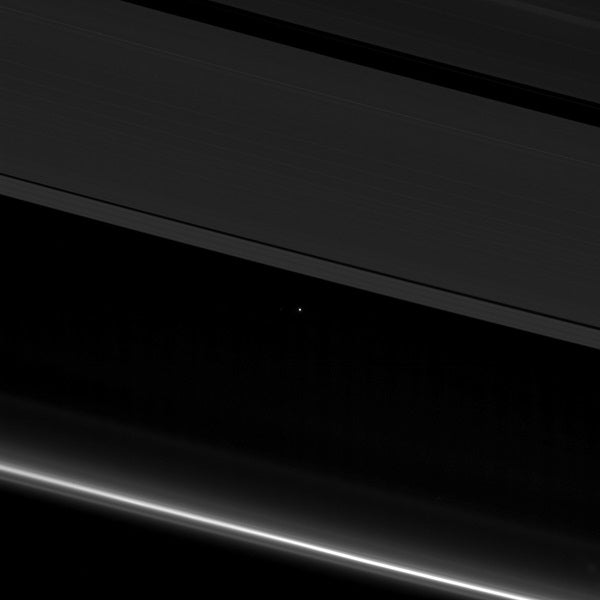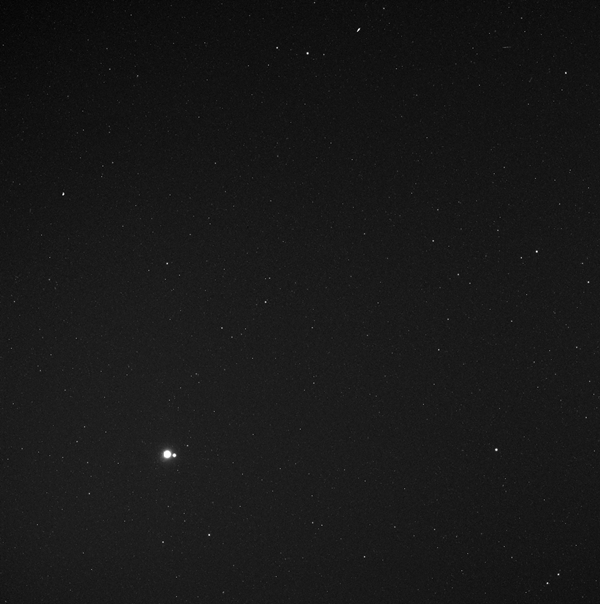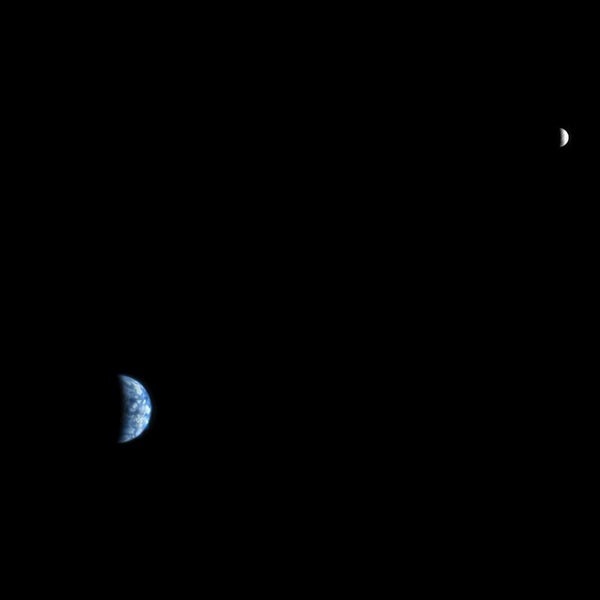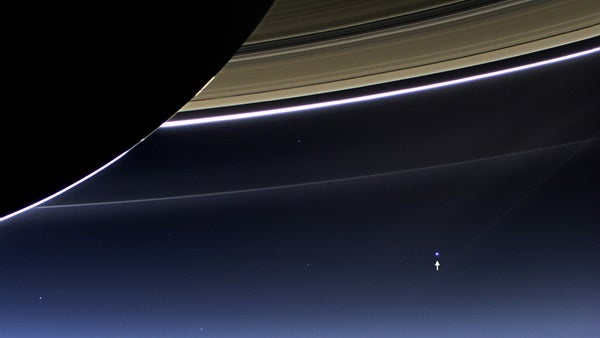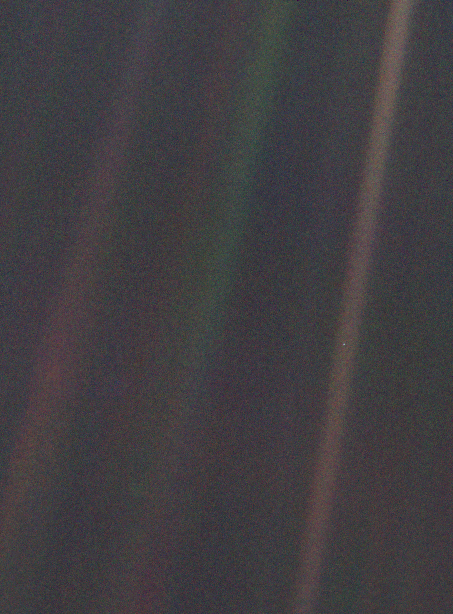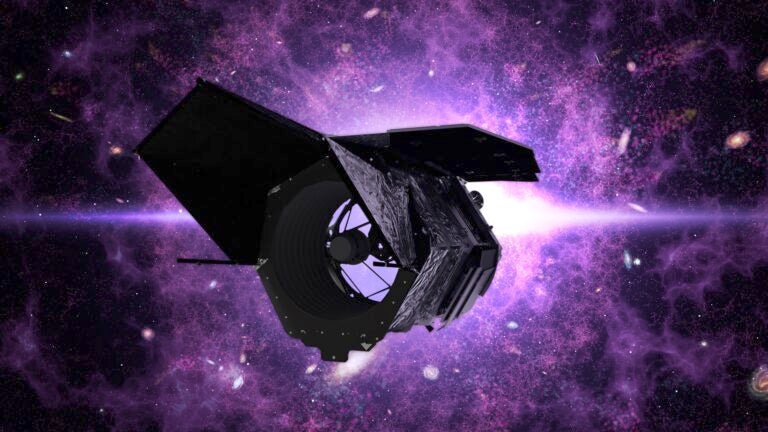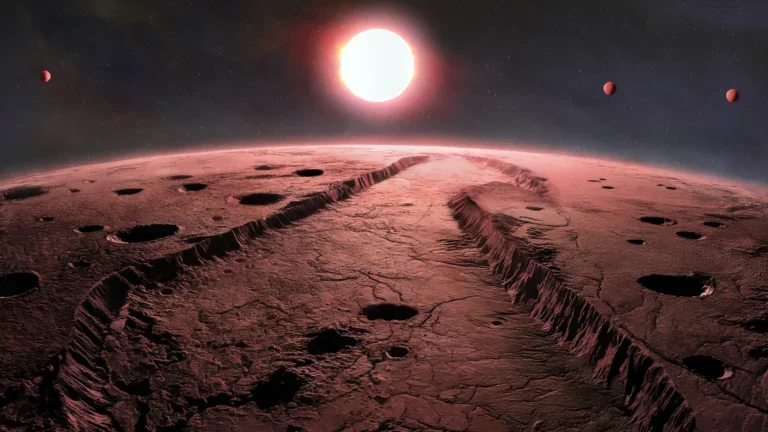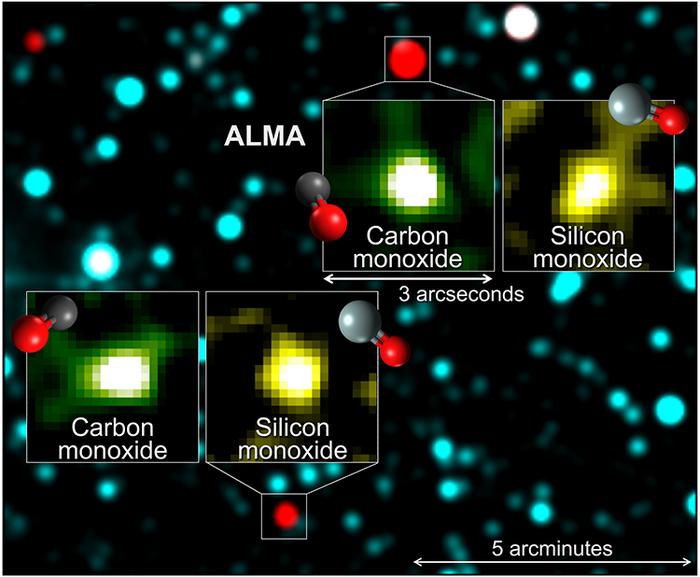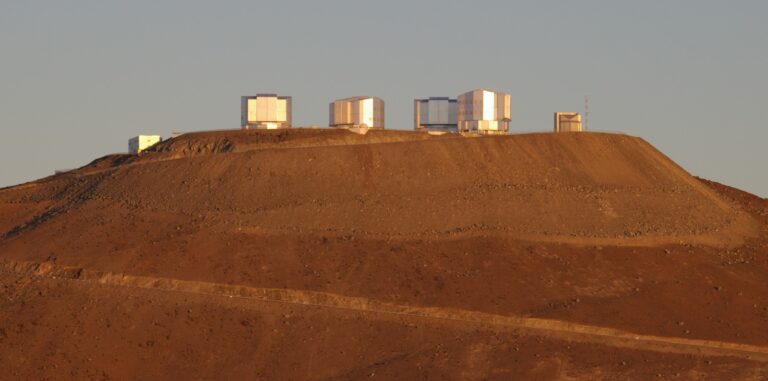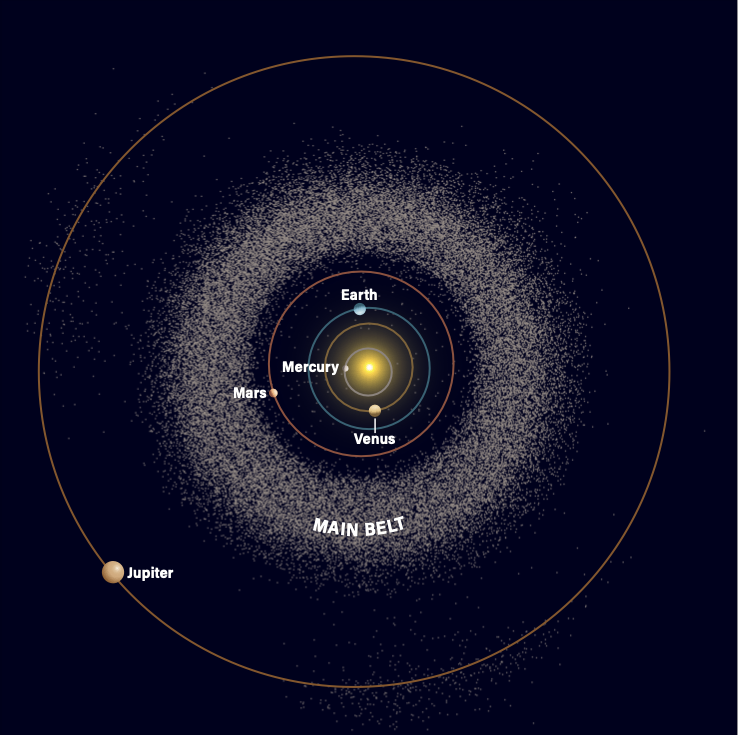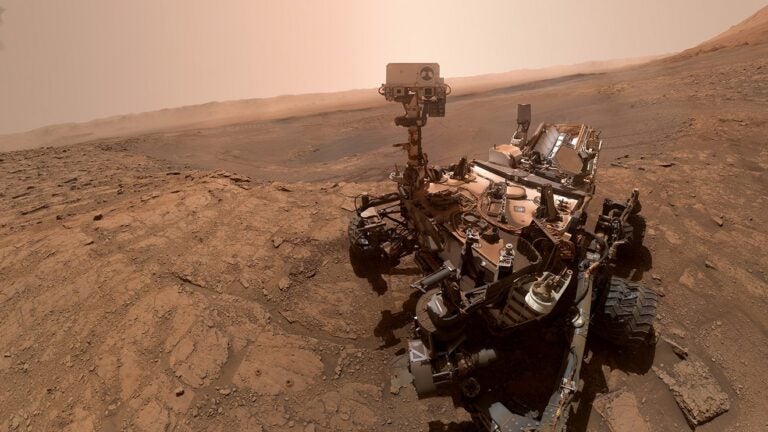NASA’s Cassini spacecraft is on the final chapter of its almost 20-year-long mission, scheduled to end September 15, 2017. While Cassini was passing by Saturn on April 12, 2017, it took one last image of Earth from Saturn, 870 million miles (1.4 billion kilometers) away.
In honor of that image, here are pictures of Earth from all the other planets so far.
Mercury
On May 6, 2010 NASA’s Mercury Surface, Space Environment, Geochemistry, and Ranging (MESSENGER) spacecraft captured an image of the Earth and Moon while it was 114 million miles (183 million kilometers) from Earth.
Mars
The image of Earth from Mars was the first shot of our planet from another. The image was taken using the High Resolution Imaging Science Experiment (HiRISE) camera on October 3, 2007 from 88 million miles (142 kilometers) from Earth. The image only shows half of the Earth and Moon because the phase angle was 98 degrees and, therefore, only illuminated half of the disks. The west coast outline of South America is visible on the lower right of Earth.
Saturn
Cassini took the third shot of Earth from another planet was taken from Saturn on July 19, 2013 from 898 million miles (1.44 billion kilometers) away. The tiny blue dot that is Earth is visible under Saturn’s main rings, the F, G, and E rings. This image was also the first time we knew in advance that Earth would be imaged from another planet.
From beyond Neptune
Also known as “The Pale Blue Dot”, this image was the first ever portrait of the solar system. Voyager 1 took a total of 60 frames to create a mosaic of the solar system from a record distance of about 4 billion miles (6 billion kilometers) away on February 14, 1990. Earth’s tiny blue dot, barely the size of a pixel, can be seen in the center of one of the light rays, which was caused by taking the image so close to the Sun.
Voyager 1 was on its way out of the solar system after completing its mission of studying the outer solar system when NASA, at the request of Carl Sagan, commanded it to turn its cameras around and take one last picture of Earth and the vast solar system.

